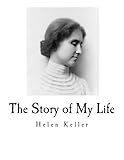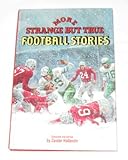The $100 USD Bill Gets A Much Needed Makeover
Language
Reading Level
Listen to Article
It has taken over a decade and faced numerous design hurdles, but the new $100 USD bill that Americans fondly call 'Benjamin' finally made its debut on October 8th, 2013. The largest U.S. denomination in circulation, it is not surprisingly, the most recognized form of U.S. Currency, worldwide.
Experts estimate that of the over one trillion USD currency held by people all over the world, 76% is in $100 bills. It is especially popular in countries that have high inflation rates because the dollar is considered a more trusted medium of exchange then the currency of the home country. It is therefore no wonder that the bill is also most prone to being counterfeited.
In order to combat that in 2003, the Treasury began the arduous process of designing a bill that is less susceptible to being duplicated illegally and also, easier to verify. While the design was ready about three years ago, they ran into production issues when the first billion bills emerged with unwanted creases and a second attempt a year later, resulted in notes with smeared ink. All the issues have finally been resolved and last Tuesday, the US Treasury carefully loaded $3.5 billion USD worth of crisp new Benjamins onto armored trucks and shipped them to banks and financial institutions throughout the nation. As the $900 billion worth of the old $100 bills that are currently in circulation are returned to the Fed they will be 'retired' and replaced with the new ones - A process that may take a number of years.
So what can you expect to find from this eagerly awaited bill? At first glance, not much. That's because the bill still features Benjamin Franklin on the front and Philadelphia's Independence Hall on the back. But look closer and you will see some rather magical things like the Liberty Bell that lies inside the copper-colored inkwell and changes from copper to a greenish hue when the note is tilted, giving the illusion of the bell disappearing and re-appearing.
Equally magical is the 3-D security ribbon - made from hundreds of thousands of micro-lenses it is embedded with bells that change to 100s when the note is tilted back and forth. Move the bill side to side, and the images will move up and down.
Like all bills, this one too has a security thread that runs vertically to the left of Ben's face and can be seen if the bill is held up to light. However unlike others, the thread is imprinted with the letters USA and the number 100. Also, thanks to the use of a technique known as Intaglio printing, Franklin's shoulder on the left side of the note will feel rough to the touch.
And those are just the features that can be seen with the naked eye. Hold the note under ultraviolet light and the security thread will turn a bright pink and incase you are still not impressed, place a magnifying glass over Ben's jacket and you will be able to read the small hitherto invisible, micro print.
Not surprisingly, the spiffy new bill that features a bright gold 100 on its right hand corner does cost more to print - 12.7 cents vs. 7.9 cents for the old $100 note. But given that it is tougher to counterfeit and much easier to authenticate, sure makes it worth the extra expense.
And in case you do happen to get hold of one of these new bills be sure to pay some attention to the eight digit serial number on the right. While it may be just a number to you, for currency collectors 'fancy' serial numbers mean a lot. The fanciest, and therefore the ones that could fetch a lot more than the face value of $100 are the earliest numbers like 00000001.
Dustin Johnson, director of currency for Heritage Auctions in Dallas, Texas, believes the redesigned note that bears those early serial numbers are likely to fetch between $10,000 to $15,000 USD! Other combinations like ladders such as 12345678 etc. are also likely to catch the fancy of the collectors, as are notes with all the same numbers. So be sure to glance at the serial numbers before cashing your new $100 USD bill - It may be worth a lot more moolah!
Resources: Boston.com, news.yahoo.com, Businessweek.com
Cite Article
Geography
Learn Keywords in this Article
406 Comments
- BRI over 6 yearsOMG THIS IS A DREAM COME TRUE!!!!!!!!!!!!!!!!!!!!!!
- naenaeabout 7 yearscool
- chelseaalmost 8 yearswow
- Ivyover 8 yearsSo cool
- KWC124over 8 yearsyeah thats pretty cool!
- coolkylea0505over 8 yearsi think it awesome that thy a macing it look cool and full proof so thy cant copy the bill and be sent to jall :)
- coolkylea0505over 8 yearsthats what i think
- smishball123over 8 yearscool!
- It's meover 8 yearsCool beans.
- Mr reasonover 8 yearsI am glad they are more fool-proof! Future for the win!
- It's mealmost 9 yearsCool beans.




